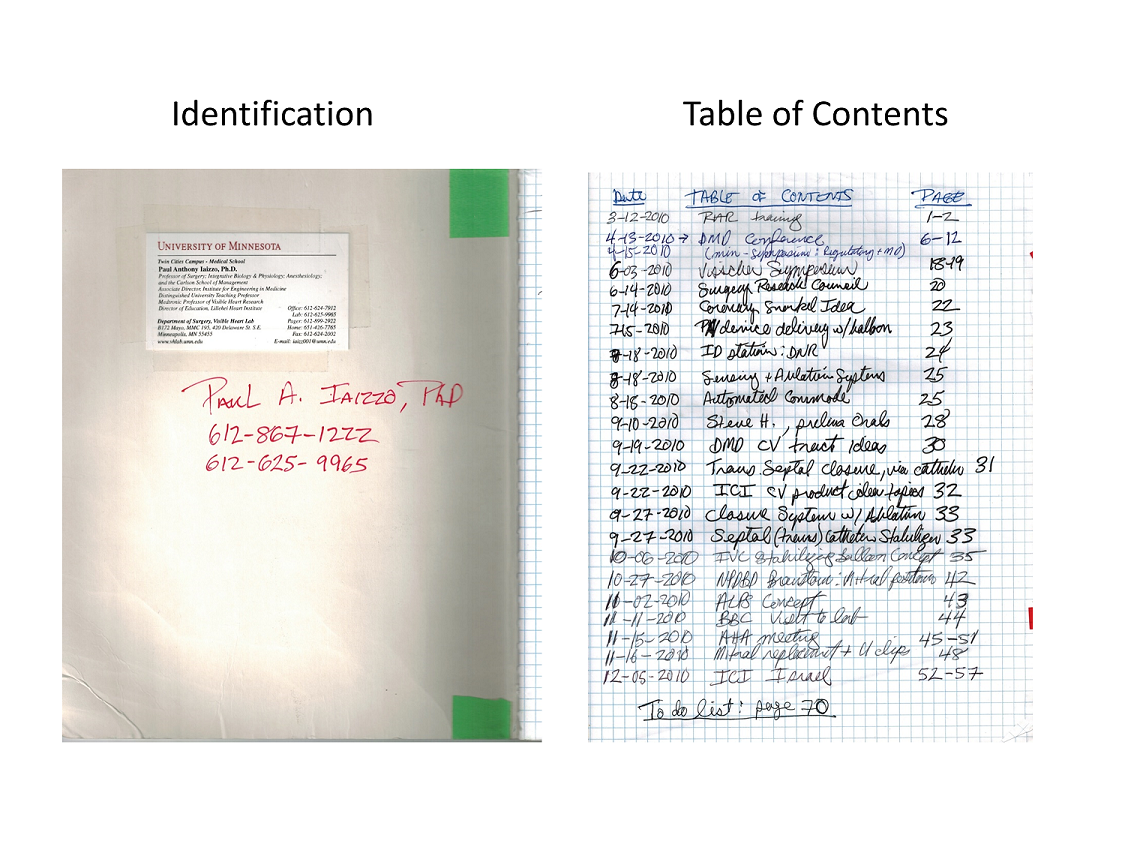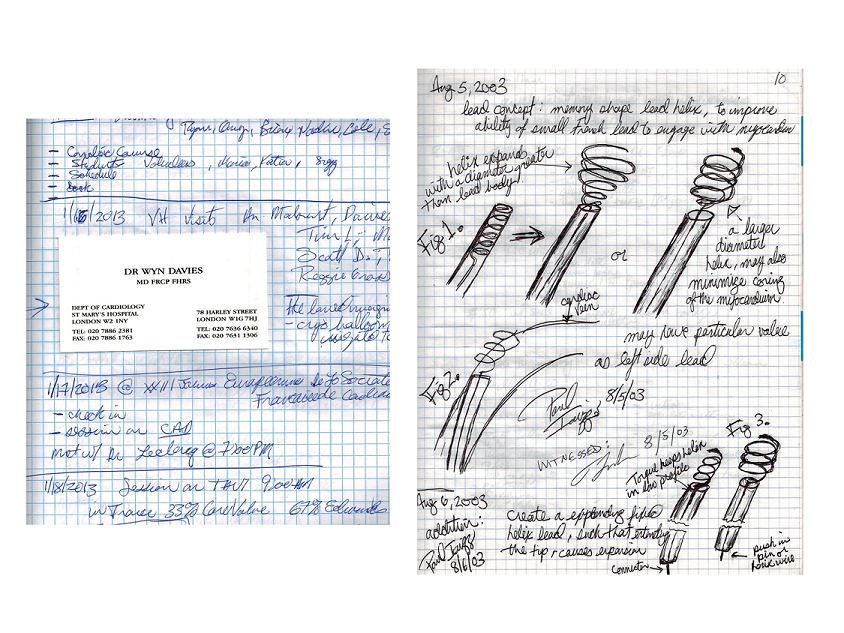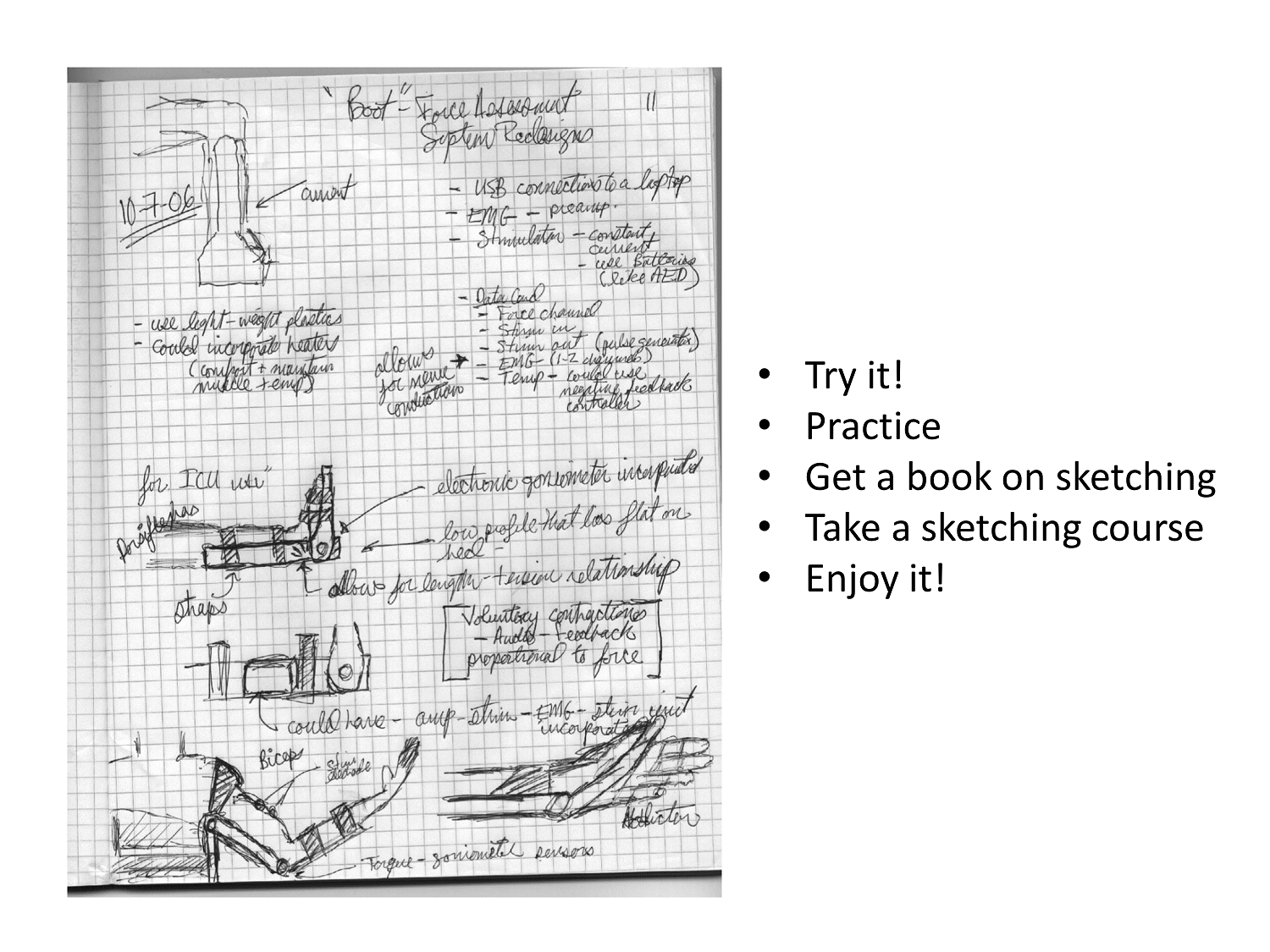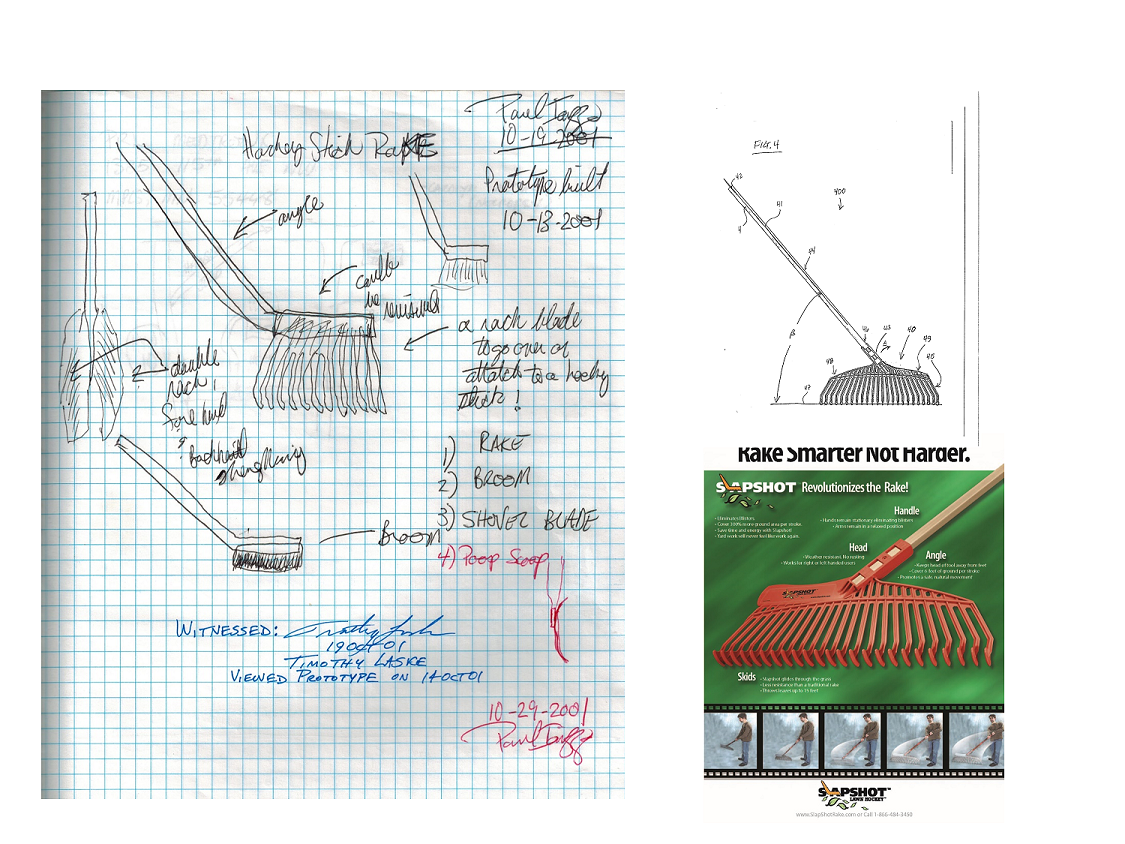13 Innovation Notebooks
Paul Iaizzo

Notebook for Recording Your Ideas
Every innovator should keep a notebook. It should contain a daily log of activities, ideas, sketches and contacts. For example, when you get a business card at a networking event, tape it into your notebook and jot down the context. Review your notebook often, and build on your ideas. If you get in the habit of putting all your sketches and ideas in your notebook, you will know where to find them.

Some Notebook Tips
- Use a pen or marker for all entries, so that the marks will not smear nor will they be erasable.
- Don’t lose it! Put your name on it, a telephone number, email, address and other info on the front cover. Put that same information on the inside front cover, or just tape in your business card.
- Date every entry.
- If your notebook does not have prenumbered pages, number every page.
- At the front include a table of contents: entry date, title of entry, page numbers.
- A notebook with gridded paper aids with figures and sketches.
- Review it often, add edits, new content.

Your sketches do not have to be a da Vinci. Stick figures are your best friend. The important thing is to get your idea down. Visual thinking is extremely helpful to work out ideas, communicate and invite discussion. It’s fast: you can often create 10 or more early concepts in the time it takes you to do an early computer aided design (CAD) rendering. Typically, you think faster with your pen than you mouth.

Notebooks and IP Protection
A record of your work that shows and dates the progress of your invention is also important for protecting your idea. Importantly, your notebook shows when your idea was conceived and who conceived the idea. Like the rest of the work, for patent rights, the U.S. is a first-to-file country. Nevertheless, the notebook is still important for the patenting process. A well-kept notebook will make it easier to communicate with your patent attorney and some patent litigation still makes use of timeline information that is in the engineers notebook.

Your Notebook is Valuable
You notebook preserves your rights or those of an employer or academic investigator to your discoveries. It is so important that most companies and some academic labs require that you leave your notebook with the institution when you leave. A well kept notebook can facilitate discussions with patent attorney (saves time and money).
Further, a comprehensive notebook enables you, or someone else, to reproduce any part of a methodology completely and accurately, even years later. Every inventor has had the experience of remembering that five years ago they had a circuit or code snippet or mechanical component that performed a function needed now, and has also experienced either the joy of digging back into a notebook to find the old idea or the frustration of having lost the notebook so that the old idea was gone forever.

